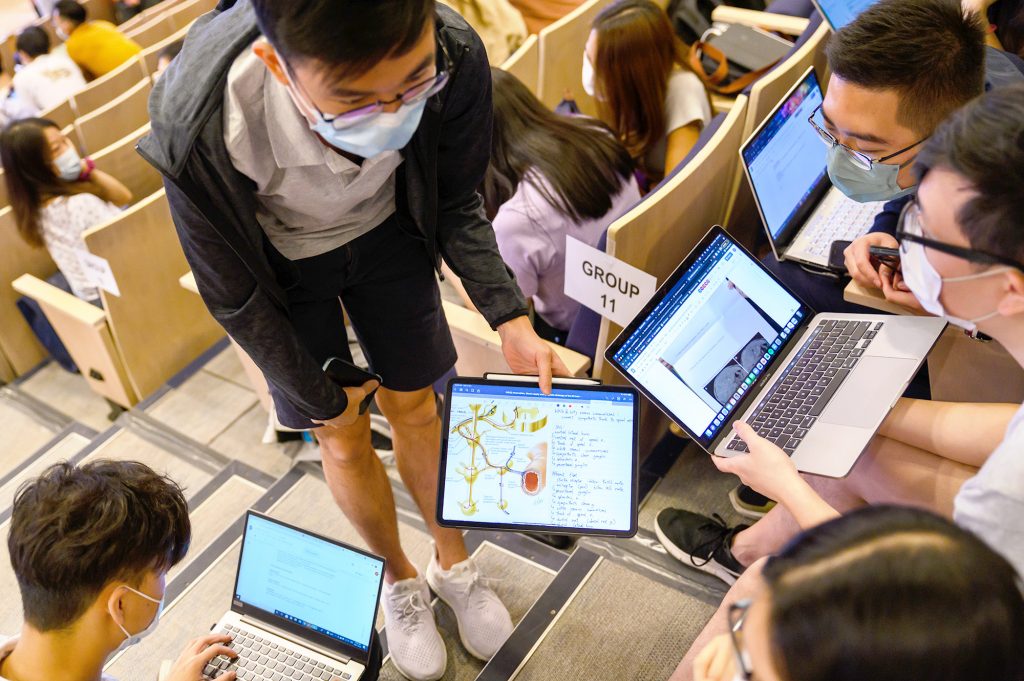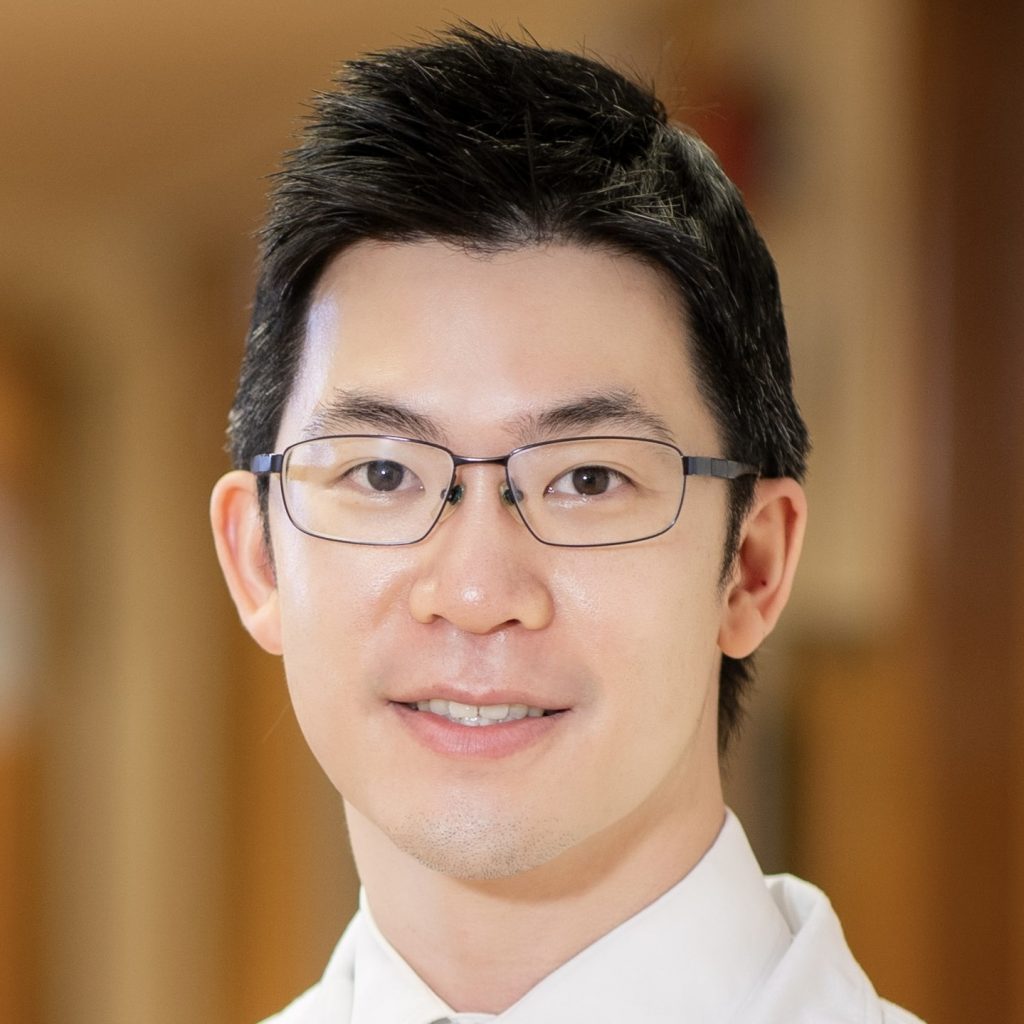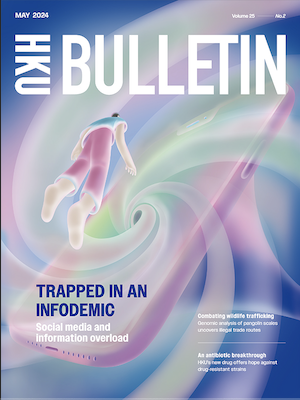May 2024 | Volume 25 No. 2
Team Players
Listen to this article:
In the healthcare professions, there is a strong tradition of passing on the baton. Students and interns learn a great deal from the knowledge and experiences of working doctors, nurses and other professionals. The expectation is that they will become such mentors themselves in the future.
In the Li Ka Shing Faculty of Medicine, that culture of nurturing the next generation has long been encouraged. Recently, these efforts were consolidated under one umbrella with the aim of giving students the reins in teaching and curriculum development.
Students in Medical and Health Sciences Education (SIMHSE) was launched earlier this year, expanding on similar initiatives led by various teachers since 2020 for medical students only. It now embraces students in nursing, Chinese medicine, pharmacology, biomedical sciences, global health and bioinformatics, too.
Professor Gary Lau Kui-kai is the Director of Education Technology and now also of SIMHSE. The two fields blend well given the advent of artificial intelligence and other new technologies, which require students and teachers to learn simultaneously how to make the most of them. So far, more than 25 innovative learning activities and resources have been developed with students as co-designers, benefitting more than 2,000 learners per year.
“It used to be that the teacher would recruit students for a project they had in mind. But quite frequently now, it’s the other way around. Students feel they have this expertise they want to share, or they really want to do more to help with various teaching and learning activities,” he said.
Near-peer teachers
For example, medical students created a tool that uploads lecture notes, reference materials and other content to the app Anki and creates flashcards to help with studying. Other students have been recruited to co-develop course content to improve AI literacy for staff and students, contributing videos and chatbots.
Near-peer teaching has also been initiated by students, with those in senior years helping their junior counterparts. This was formalised in 2021 when students Vernice Chan (MBBS graduate), Evelyn Chan (MBBS graduate), Teenie Wong (now in MBBS Year 6) and Helen Xiao (MBBS Year 5) organised Zoom-based tutorials for pre-clinical students, led by senior students, during pandemic restrictions.
The team planned the content, recruited participants, coordinated schedules, worked with the Faculty to arrange training for student teachers, collected feedback and adapted the programme accordingly. The tutorial groups are kept to a small size to foster interaction and have benefitted more than 150 students each year. This year the initiative was also extended to the clinical teaching years, with senior students leading tutorials on history-taking and physical examinations.
“Near-peer teaching offers alternative approaches to understanding content because peer teachers use their own notes, such as mind maps, tables and mnemonics. The peer teachers also benefit by deepening their understanding and revising the content,” Teenie and Helen said.
Teenie and Helen were nominated as student members of HKU’s core steering group on Students as Partners, and they were among the five medical students awarded the Poon Li Wai Hing Award for Student in Medical Education in 2023.

Students in an Active Learning Workshop facilitated by peer teachers.
External recognition
Student involvement in teaching has also been honoured locally and internationally. A project on students as co-designers, led by Dr Mei Li Khong and MBBS students, Winson Chan Hei-man, Justin Ng Ka-yu, Fok Jing-chen, Clement Ho Ka-chun, Lee Ka-ching and Odelle Wong Kar-yiu, received a global Bronze Award at the QS Reimagine Education 2023 event in Abu Dhabi that attracted more than 1,200 submissions. This team, supervised by Dr Khong, also won first prize at the 4th Symposium on Redesigning Student Learning Experience in Higher Education held for universities in Hong Kong.
Going forward, Professor Lau said that apart from extending SIMHSE to all students in the Faculty, they hoped to involve other disciplines such as engineering, where the overlay of technology with medicine makes a good fit in this era of big data and AI.
He noted that apart from the benefits to students, it was also rewarding for the Faculty to see students take a deep interest in teaching. Some medical students have pursued intercalated degrees in medical education during their Enrichment Year in the third year, and others have expressed a desire to become teachers.
“We are really proud of what our students are achieving and how they are taking the initiative to develop and co-develop materials and engage in nurturing the new generation. The students benefit a lot, too, because it prepares them for their professional roles as educators in the clinical setting,” he said.
It used to be that the teacher would recruit students for a project they had in mind. But quite frequently now, it’s the other way around.

Professor Gary Lau Kui-kai

